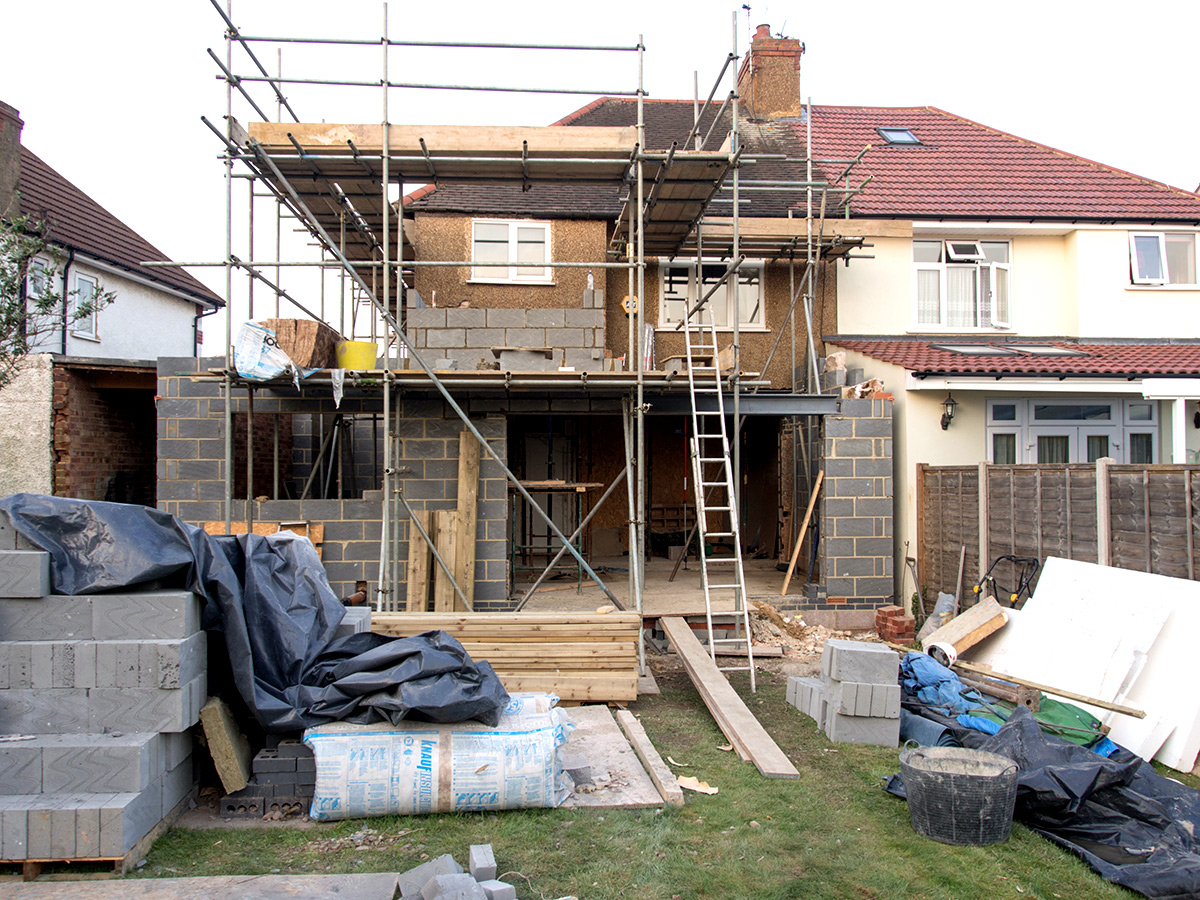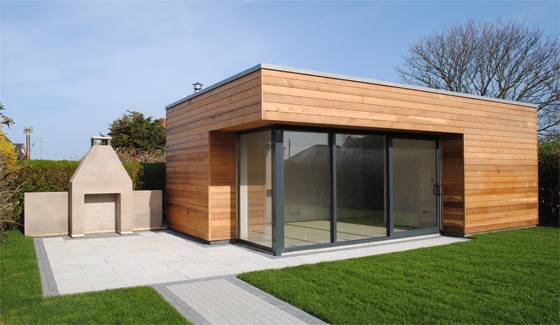What you can build without planning permission in Wales
In this article, we cover:
- What you can do under permitted development rights (PDRs) in Wales
- Rules for extensions, loft conversions and garage conversions
- Planning rules for windows, doors, rooflights and external finishes
- Guidance on solar panels, wind turbines, outbuildings and paving
If you’re thinking of making changes to your home in Wales — like building an extension, converting your loft or installing solar panels — you may not need planning permission. Many minor improvements and additions are allowed under permitted development rights (PDRs), a set of rules laid out by the Welsh government.
These rights apply to most houses but not to listed buildings, or homes in Conservation Areas and other designated zones, where extra restrictions may apply.
Here’s a breakdown of what’s typically allowed:
[adrotate banner="58"]House extensions
You can build a single-storey extension without planning permission if it meets all of the following conditions:
- It does not extend more than 4 metres from the rear wall of a detached house, or 3 metres for other types of houses.
- It is not closer to a highway than the original house.
- The extension is not higher than 4 metres.
- The total area of ground covered by the extension and other outbuildings does not exceed 50 per cent of the land around the original house.
- It is not on the side of the house unless it is no wider than half the width of the original dwelling.
Two-storey extensions will usually need planning permission unless set far enough back and away from boundaries, and meeting strict height and size limits.
All materials must match the appearance of the existing house, and you must not include balconies, verandas or raised platforms without permission.

Loft conversions and other internal alterations
You can usually convert your loft under permitted development if:
- The total volume added is no more than 40m³ for terraced houses and 50m³ for detached or semi-detached houses.
- Dormers are placed at the rear, do not overhang the walls of the original house, and do not exceed the height of the existing roof.
- Side-facing windows are obscure-glazed with openings 1.7 metres or higher from the floor.
As with all conversions, building regulations still apply — especially for fire safety and structural work.
Garage conversions
You don’t normally need planning permission to convert an internal garage into living space, provided:
- The external appearance of the house isn’t changed.
- The garage was part of the original building.
- No planning conditions restrict the use of the garage as a parking space (check your deeds or previous approvals).
Detached garage conversions are more likely to require permission, depending on how the space will be used.
Windows, doors and rooflights
You can usually replace or install new windows and doors without planning permission, provided:
- They are of similar appearance to the originals.
- Side-facing upper-floor windows are obscured glass and non-opening unless 1.7 metres above floor level.
- Rooflights don’t project more than 15cm from the roof slope or sit above the highest part of the roof.
In Conservation Areas or for listed buildings, additional consents are almost always required.
External walls and finishes
Planning permission is not required to paint or re-render your home unless:
- Your home is listed, in a Conservation Area or a World Heritage Site.
- You are applying stone, timber, tiles or brick slips to the exterior.
In those cases, you may need planning consent — especially if the work affects the building’s character.

Solar panels and wind turbines
You can install solar panels under permitted development as long as:
- They do not stick out more than 20cm from the wall or roof surface.
- They are not installed on a wall facing a highway if the house is in a Conservation Area.
- Standalone panels are no more than 4 metres high and are placed at least 5 metres from the boundary.
Solar panels can be installed without planning permission in most cases, unless your home is listed. You’ll just need to make sure your installation meets the conditions set out under permitted development rights.
Domestic wind turbines usually require planning permission, particularly if they’re mounted on a mast or generate noise.
Outbuildings and garden structures
You can build sheds, greenhouses, garden rooms and other outbuildings without planning permission if:
- They are not located forward of the principal elevation (the front of the house).
- They are single storey, with a maximum height of 4 metres for a dual-pitched roof or 3 metres for other roof types.
- They are within 2 metres of a boundary and not taller than 2.5 metres.
- They do not cover more than 50 peer cent of the land around the original house.
Outbuildings used for home offices, storage or leisure typically qualify — but if the building is used for sleeping, or includes plumbing, building regulations will apply.

Decking and raised platforms
Planning permission is required for any decking or raised platform over 300mm above ground level.
Driveways and paving
You don’t need planning permission to install a driveway or paved area if:
- The materials are permeable (like gravel or porous concrete), or
- The surface drains into a lawn or flowerbed.
If the surface is impermeable and covers more than 5 square metres, planning permission may be required.
Important notes
- PDRs do not apply to listed buildings.
- Your local planning authority may have removed permitted development rights through an Article 4 Direction.
- Regulations may vary in National Parks or Conservation Areas.
Always check with your local council’s planning department before starting work. You can also visit planningaidwales.org.uk or the Welsh government’s planning portal for more detailed guidance.




